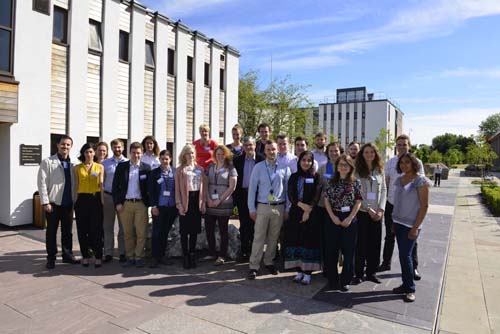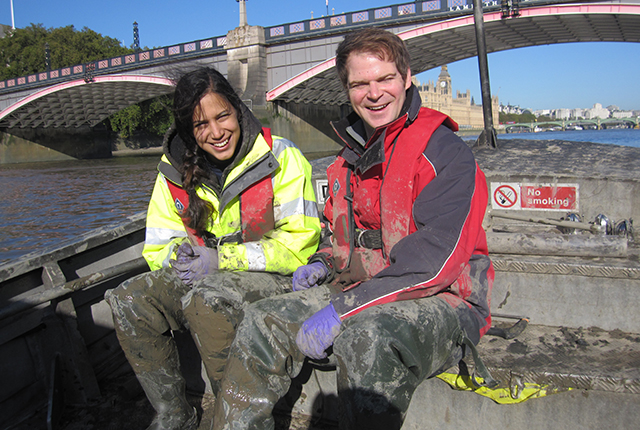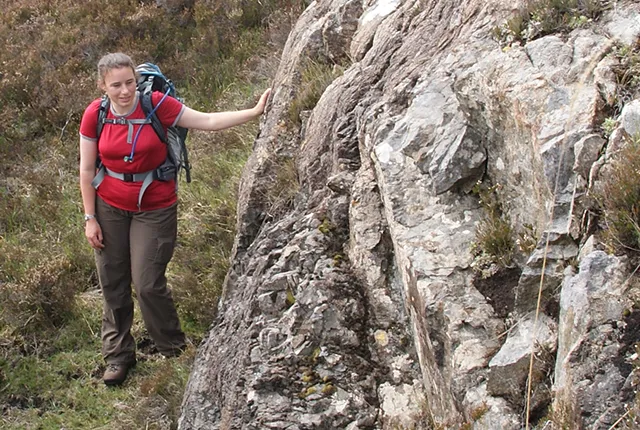Our project-based studentships are open to all applicants who meet the academic requirements (at least a 2:1 at UK BSc level or at least a pass at UK MSc level, or equivalent). We support graduates who have studied a wide range of subjects including earth sciences, geography, environmental science, chemistry, biology, physics, maths, engineering and computing.
Please note that unless you are eligible for a Home Award, you will need to consider how you will be able to meet any shortfall in funding for tuition fees. Different institutions will have different requirements for this: please contact the university supervisors listed on the project for more information.
To be eligible for a full (Home) Award a student must have no restrictions on how long they can stay in the UK and have been ordinarily resident in the UK for at least three years prior to the start of the studentship.
- For further information please see Annex B.
Please check individual rules with the university you are applying to.
We are committed to promoting equality and diversity across our organisation as well as across all areas of our science community including PhD researchers.
How to apply
BGS-sponsored PhD researchers are expected to have significant interaction with the survey during their research. A BGS member of staff will be part of your supervision team and you will be expected to spend some of your research training at the BGS. The amount of time depends on the type of project. The BGS has two categories of PhDs: hosted studentships and collaborative studentships.
Funding for the PhD is usually provided by the Doctoral Training Partnership. The post graduate researcher is expected to spend at least 50 per cent of their time at BGS. Hosted PhD researchers will be primarily based at the BGS and will be undertaking research that is key to our strategy. Your time at BGS will be spent at either our Keyworth, Edinburgh, Cardiff or Belfast offices and you will have access to and training on a range of our world class research facilities and data.
A BGS member of staff will be your lead supervisor and be responsible for your research training. You will become a member of one of the science teams that underpin our main research themes and have access to a broad range of applied geoscience expertise.
In addition to technical training (see the BGS GeoSchool for examples of this), you will have access to the BGS personal development training programme, e.g. project management, technical writing and the BGS mentoring scheme.
As the BGS does not award degrees, you will be registered for your degree at one of the universities in the partnership and, in collaboration with your university, your BGS supervisors will develop an appropriate portfolio of research training.
BUFI will contribute funds to cover mobility between BGS and the collaborating university and, where appropriate, additional support to the Research and Training Support Grant (RTSG), which can be used to support research costs at BGS.
Doctoral Training Partnerships (DTP2) and the collaborating universities where BGS can host its own students:
- University of Birmingham
- Cranfield University
- University of Leicester
- Loughborough University
- The Open University
- University of Warwick
- Bangor University
- Lancaster University
- University of Nottingham
- Rothamsted Research
- UK Centre for Ecology & Hydrology
- Durham University
- University of Glasgow
- Heriot-Watt University
- Newcastle University
- University of St Andrews
- University of Stirling
- Imperial College London
Application procedure
Candidates wishing to apply for a BGS-hosted studentship should follow the guidelines of the appropriate Doctoral Training Programme.
Further information
For enquiries about individual hosted projects, please email the BGS or university supervisor as stated in the PhD opportunity. If you have a general enquiry about undertaking your PhD research with BGS, email BUFI.
If the BGS is a collaborative partner on your PhD project, you will be primarily based at a partner university. However, you will typically spend between three and eighteen months at the BGS during the three to four years of your research training. A BGS member of staff will be a key part of your supervisory team and, in consultation with your lead university supervisor, they will develop an appropriate training programme that can include classroom-based technical training (see the BGS GeoSchool for examples of this) and hands-on training in using the analytical equipment and data required for your project. BUFI provides support to students to cover additional research costs and travel and subsistence whilst the student is at BGS.
BGS has offered to support collaborative studentships in the following Doctoral Training Programmes:
- British Antarctic Survey
- University of Cambridge
- University of Birmingham
- Cranfield University
- University of Leicester
- Loughborough University
- The Open University
- University of Warwick
- University of Edinburgh
- Bangor University
- Lancaster University
- University of Nottingham
- Rothamsted Research
- UK Centre for Ecology & Hydrology
- University of Bath
- University of Bristol
- Cardiff University
- University of Exeter
- Durham University
- University of Glasgow
- Heriot-Watt University
- Newcastle University
- University of St Andrews
- University of Stirling
- Birkbeck University of London
- Brunel University London
- King’s College London
- Queen Mary University of London
- Royal Holloway University of London
- University College London
- University of Oxford
- University of Hull
- University of Leeds
- University of York
- University of Reading
- University of Surrey
- British Antarctic Survey
- University of Edinburgh
- University of Leeds
- National Oceanography Centre
- Imperial College London
Application procedure
Applications for collaborative PhDs are usually via the host university. Please check the relevant Doctoral Training Partnership or university website.
Further information
For enquiries about individual collaborative projects please email the BGS or university supervisor as stated in the PhD opportunity. If you have a general enquiry about undertaking your PhD research with BGS, email BUFI.
More BUFI information

BUFI Science Festival
The BUFI Science Festival is an annual competitive event to showcase the science undertaken by BGS PhD students.

PhD and training opportunities
PhD opportunities at BGS.


